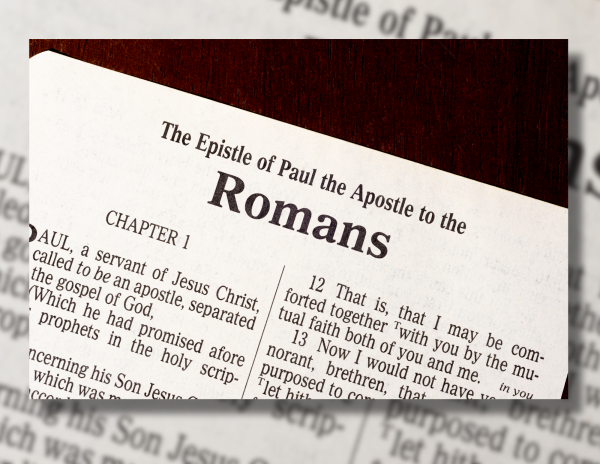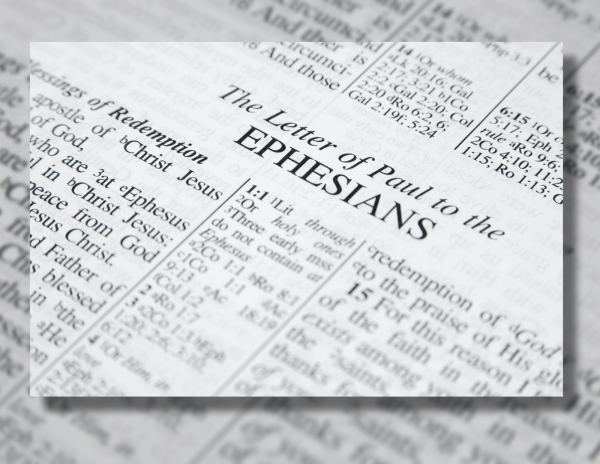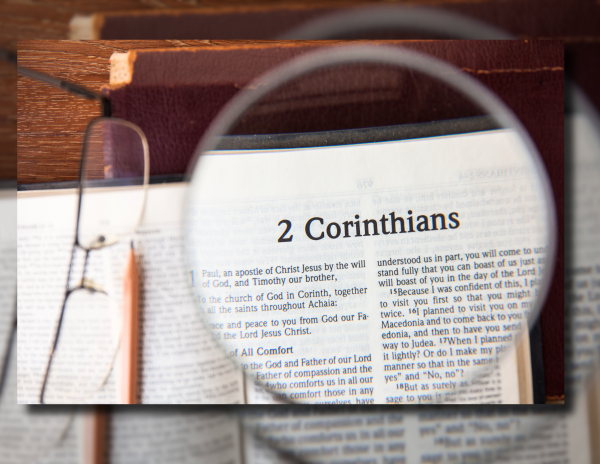◆ ◆ ◆
The Holy Bible has had an extreme impact on Western civilization. In 2021, it was recognized by the Guinness World Records as the best-selling book of all time, with an estimated 5 to 7 billion copies issued since its 1,500-year standardization. The New Testament, with its focus on the life, teachings, and resurrection of Jesus Christ, has been a cornerstone of cultural practices.
As the holiday season approaches, let’s delve into ten encouraging New Testament books that illuminate Jesus and His finished work on the cross. These books not only explain what it all means but also assure us of the acceptance and joy believers can find in their salvation.
1. The Book of John

John’s gospel may be the most influential book of the entire New Testament. In this book, John, one of Jesus’ 12 disciples, writes a portion of the history of Jesus’ earthly ministry. He highlights how Jesus foreshadowed the heavenly ministry that the apostle Paul would teach after His ascension into heaven—Christ in you, the hope of glory—and emphasizes Jesus’ statement that only by believing on Him can someone receive eternal life and go to heaven upon death. The book contrasts with the other synoptic gospels (Matthew, Mark, and Luke), emphasizing a spiritual reality not mentioned in those texts. True righteousness and sanctification cannot be found in material objects or self-effort. Christ is righteousness and sanctification. The book’s “For God so loved the world” verse is a classic Christian staple.
Key Verses:
“For God so loved the world, that he gave his only begotten Son, that whosoever believeth in him should not perish, but have everlasting life.” – Jn 3:16
“In the last day, that great day of the feast, Jesus stood and cried, saying, If any man thirst, let him come unto me, and drink. He that believeth on me, as the scripture hath said, out of his belly shall flow rivers of living water. (But this spake he of the Spirit, which they that believe on him should receive: for the Holy Ghost was not yet given; because that Jesus was not yet glorified.)” – Jn 7:37-39
“Neither pray I for these alone, but for them also which shall believe on me through their word; That they all may be one; as thou, Father, art in me, and I in thee, that they also may be one in us: that the world may believe that thou hast sent me. And the glory which thou gavest me I have given them; that they may be one, even as we are one: I in them, and thou in me, that they may be made perfect in one; and that the world may know that thou hast sent me, and hast loved them, as thou hast loved me.” – Jn 17:20-23
Listen to The Book of John here.
2. The Book of 1 John

1 John is a book written for believers to have joy in their salvation, knowing they are accepted by God and are His children. John talks about the gospel—the word heard from the beginning—and how this testimony proves whether someone is saved. He writes the book in such a way that a legalist or unbeliever will read it by the letter rather than the Spirit, proving that they are either erroring from the truth or are an antichrist—an unbeliever. John concludes that someone is saved by the testimony of Christ being confirmed in them, not by following outward ordinances and rejecting God’s method of justification. The commandments John refers to are not the commandments of the letter (i.e., the Ten Commandments). The commandments John speaks to are one and the same, “believe on the name of his Son Jesus Christ, and love one another”—recognizing one’s testimony that Jesus Christ, the Saviour of the world, the Son of God, who came in the flesh, died for our sins, was buried, and rose again on the third day according to the scriptures.
Key Verses:
“And these things write we unto you, that your joy may be full.” – 1 Jn 1:4
“Marvel not, my brethren, if the world hate you. We know that we have passed from death unto life, because we love the brethren. He that loveth not his brother abideth in death.” – 1 Jn 3:13-14
“These things have I written unto you that believe on the name of the Son of God; that ye may know that ye have eternal life, and that ye may believe on the name of the Son of God.” 1 Jn 5:13
Listen to The Book of 1 John here.
3. The Acts of the Apostles

Acts is a book that highlights the transition of the early church from a law-based ministry centered in Jerusalem to a grace-based ministry—led by the apostle Paul after Christ’s resurrection and ascension—toward the world. The Acts of the Apostles focuses on Israel’s rejection of Jesus as Messiah, the conversion of Paul after Jesus visits him personally, and records his ministerial journey across Europe and Asia. The author describes the legalism and confusion that initially ensued within the Jewish community when they realized God had included Gentiles in His plan for salvation. The book illustrates the times Paul’s revelation from Christ—the everlasting gospel—was debated by those of religious authority in Jerusalem, including James, Jesus’s earthly brother. Though not a “pretty” narrative, the book assures readers why Paul’s messages of grace contradict James’s, as Paul was the only person to receive that initial revelation from the ascended Christ during that period.
Key Verses:
“Now therefore why tempt ye God, to put a yoke upon the neck of the disciples, which neither our fathers nor we were able to bear? But we believe that through the grace of the Lord Jesus Christ we shall be saved, even as they.” – Acts 15:10-11
“And they are informed of thee, that thou teachest all the Jews which are among the Gentiles to forsake Moses, saying that they ought not to circumcise their children, neither to walk after the customs. What is it therefore? the multitude must needs come together: for they will hear that thou art come.” – Acts 21:21-22
“Delivering thee from the people, and from the Gentiles, unto whom now I send thee, To open their eyes, and to turn them from darkness to light, and from the power of Satan unto God, that they may receive forgiveness of sins, and inheritance among them which are sanctified by faith that is in me.” – Acts 26:17-18
Listen to The Acts of the Apostles here.
4. The Book of Galatians

In his first epistle, Paul claims that his apostleship comes from the risen Jesus Christ Himself and that anyone who preaches a false gospel other than the one he and Christ assert is to be considered accursed. Paul speaks on the confusion during the days of the early church when Peter, one of Jesus’s 12 disciples, was pressured by men from James to tell the Gentiles they must live like the Jews to be justified in the eyes of God. Paul emphatically states a man is justified by faith without the deeds of the Ten Commandments. He further emphasizes that saved believers are exhorted to live by faith, as a man cannot follow the law to earn anything from God or make themselves perfect. He alludes to the fact that believers are already complete in Christ because they have believed the gospel. By walking in the Spirit—renewing their minds through reminders about their identity as God’s children—believers can experience the present joyfulness of their salvation that God gave them freely through Christ’s accomplishment.
Key Verses:
“Knowing that a man is not justified by the works of the law, but by the faith of Jesus Christ, even we have believed in Jesus Christ, that we might be justified by the faith of Christ, and not by the works of the law: for by the works of the law shall no flesh be justified.” – Gal 2:16
“For I through the law am dead to the law, that I might live unto God. I am crucified with Christ: nevertheless I live; yet not I, but Christ liveth in me: and the life which I now live in the flesh I live by the faith of the Son of God, who loved me, and gave himself for me.” – Gal 2:19-20
“This only would I learn of you, Received ye the Spirit by the works of the law, or by the hearing of faith? Are ye so foolish? having begun in the Spirit, are ye now made perfect by the flesh? – Gal 3:2-3
“Stand fast therefore in the liberty wherewith Christ hath made us free, and be not entangled again with the yoke of bondage.” – Gal 5:1
Listen to The Book of Galatians here.
5. The Book of Romans

Paul’s letter to the Romans summarizes his ministry and revelation from the Lord Jesus Christ. The apostle talks about God’s judgment on the flesh, how a man is justified by faith in Christ without works, God’s economy and dealings with the nation of Israel as a separate entity from the Church, and communal living within the Body of Christ. Chapters 6-8 are arguably the heaviest source material in Romans. They illustrate the profound implications of man’s depravity and how to overcome its nature by embracing Christ’s position as the heir of all things. Paul states that the flesh is so broken beyond repair that it cannot be fixed, improved, or perfected through man’s efforts. Believers are to reckon it “dead” and remind themselves they have peace with God through Christ—being baptized into His death and raised in the likeness of His resurrection. He is sinlessly perfect and has imparted His righteousness upon those who have believed on Him for everlasting life.
Key Verses:
“For I am not ashamed of the gospel of Christ: for it is the power of God unto salvation to every one that believeth; to the Jew first, and also to the Greek. For therein is the righteousness of God revealed from faith to faith: as it is written, The just shall live by faith.” – Rom 1:16-17
“Therefore we conclude that a man is justified by faith without the deeds of the law.” – Rom 3:28
“Therefore being justified by faith, we have peace with God through our Lord Jesus Christ: By whom also we have access by faith into this grace wherein we stand, and rejoice in hope of the glory of God.” – Rom 5:1-2
“But I see another law in my members, warring against the law of my mind, and bringing me into captivity to the law of sin which is in my members. O wretched man that I am! who shall deliver me from the body of this death? I thank God through Jesus Christ our Lord. So then with the mind I myself serve the law of God; but with the flesh the law of sin.” – Rom 7:23-25
“There is therefore now no condemnation to them which are in Christ Jesus, who walk not after the flesh, but after the Spirit. For the law of the Spirit of life in Christ Jesus hath made me free from the law of sin and death.” – Rom 8:1-2
Listen to The Book of Romans here.
6. The Book of Colossians

Colossians is one of Paul’s shortest epistles, yet it is still profound in what it reveals—the mystery of Christ in you, the hope of glory. Jesus has become the believer’s life. He died for the sins of the whole world, and believers are complete in Him, lacking nothing. Even when their condition (outward appearance) does not match their position in Christ, God still sees them as His children and desires saints to reckon that as true.
Key Verses:
“And you, that were sometime alienated and enemies in your mind by wicked works, yet now hath he reconciled In the body of his flesh through death, to present you holy and unblameable and unreproveable in his sight: If ye continue in the faith grounded and settled, and be not moved away from the hope of the gospel, which ye have heard, and which was preached to every creature which is under heaven; whereof I Paul am made a minister;” – Col 1:21-23
“Whereof I am made a minister, according to the dispensation of God which is given to me for you, to fulfil the word of God; Even the mystery which hath been hid from ages and from generations, but now is made manifest to his saints: To whom God would make known what is the riches of the glory of this mystery among the Gentiles; which is Christ in you, the hope of glory: Whom we preach, warning every man, and teaching every man in all wisdom; that we may present every man perfect in Christ Jesus:” Col 1:25-28
“And you, being dead in your sins and the uncircumcision of your flesh, hath he quickened together with him, having forgiven you all trespasses; Blotting out the handwriting of ordinances that was against us, which was contrary to us, and took it out of the way, nailing it to his cross;” – Col 2:13-14
Listen to The Book of Colossians here.
7. The Book of Ephesians

Paul reminds and teaches the saints at Ephesus and faithful in Christ Jesus about the mystery of Christ, who He is, and what God wrought in Him upon His resurrection. He is the fullness of the Godhead and has given believers access to God, meaning they are spoiled children who get to bask in Christ’s eternal life and inheritance for free. Believers can enjoy His presence now by simple faith in the gospel and reminding themselves of what He secured for them upon justification. They are called to remind fellow believers about this inheritance, and conduct themselves in a manner worthy of their calling so all can become a “perfect man” in the knowledge of the Saviour. He is the armour that shall protect them in the days of temptation and deceit from the Devil. The goal is to be grounded in God’s love and to know the love of Christ.
Key Verses:
“That the God of our Lord Jesus Christ, the Father of glory, may give unto you the spirit of wisdom and revelation in the knowledge of him: The eyes of your understanding being enlightened; that ye may know what is the hope of his calling, and what the riches of the glory of his inheritance in the saints, And what is the exceeding greatness of his power to us-ward who believe, according to the working of his mighty power, Which he wrought in Christ, when he raised him from the dead, and set him at his own right hand in the heavenly places,” – Eph 1:17-20
“That Christ may dwell in your hearts by faith; that ye, being rooted and grounded in love, May be able to comprehend with all saints what is the breadth, and length, and depth, and height; And to know the love of Christ, which passeth knowledge, that ye might be filled with all the fulness of God.” – Eph 3:17-19
“And he gave some, apostles; and some, prophets; and some, evangelists; and some, pastors and teachers; For the perfecting of the saints, for the work of the ministry, for the edifying of the body of Christ: Till we all come in the unity of the faith, and of the knowledge of the Son of God, unto a perfect man, unto the measure of the stature of the fulness of Christ:” – Eph 4:11-13
Listen to The Book of Ephesians here.
8. The Book of 2 Corinthians

2 Corinthians may be the most graceful epistle written in the New Testament. Riddled with rich language, Paul starts off his second letter to the Corinthian church, insisting there is strength in weakness and how tribulations work out comfort to all in Christ Jesus. He elaborates that the goal of the New Testament ministry is to edify the Body of Christ—saved believers—through joy. A believer’s sufficiency is of God, and His Spirit gives life through speaking Christ’s Person and work. Paul likens this revelation to someone beholding a reflection in a glass and how having this treasure in earthly vessels exemplifies the power of God, abasing believers in the process. The righteous are to walk by faith, not by sight, and be enlarged by the incorruptible inheritance awaiting them upon death.
Key Verses:
“Now the Lord is that Spirit: and where the Spirit of the Lord is, there is liberty. But we all, with open face beholding as in a glass the glory of the Lord, are changed into the same image from glory to glory, even as by the Spirit of the Lord.” – 2 Cor 3:17-18
“For which cause we faint not; but though our outward man perish, yet the inward man is renewed day by day. For our light affliction, which is but for a moment, worketh for us a far more exceeding and eternal weight of glory; While we look not at the things which are seen, but at the things which are not seen: for the things which are seen are temporal; but the things which are not seen are eternal.” – 2 Cor 4:16-18
“For this thing I besought the Lord thrice, that it might depart from me. And he said unto me, My grace is sufficient for thee: for my strength is made perfect in weakness. Most gladly therefore will I rather glory in my infirmities, that the power of Christ may rest upon me. Therefore I take pleasure in infirmities, in reproaches, in necessities, in persecutions, in distresses for Christ’s sake: for when I am weak, then am I strong.” – 2 Cor 12:8-10
Listen to The Book of 2 Corinthians here.
9. The Book of 1 Peter

Peter, an influential disciple who wrestled with doubt—as seen in The Book of Galatians—affirms Paul’s ministry and revelation from Christ in his first epistle. He talks about themes and concepts repeated throughout Paul’s writings—the incorruptible inheritance that does not fade away, reserved in heaven for believers in Christ. He stresses that the saints should season their conversations and speech with grace and adorn the gospel in all manner of conversation to the edifying of the hearers—regardless of confrontation and persecution by the gainsayers. Peter, too, speaks on overcoming the sinful nature illustrated in Romans 6-8 with simplicity. It is arguably one of the most grace-filled books in the New Testament written by someone other than the apostle Paul.
Key Verses:
“Blessed be the God and Father of our Lord Jesus Christ, which according to his abundant mercy hath begotten us again unto a lively hope by the resurrection of Jesus Christ from the dead, To an inheritance incorruptible, and undefiled, and that fadeth not away, reserved in heaven for you, Who are kept by the power of God through faith unto salvation ready to be revealed in the last time.” – 1 Pet 1:3-5
“For for this cause was the gospel preached also to them that are dead, that they might be judged according to men in the flesh, but live according to God in the spirit.” – 1 Pet 4:6
“If any man speak, let him speak as the oracles of God; if any man minister, let him do it as of the ability which God giveth: that God in all things may be glorified through Jesus Christ, to whom be praise and dominion for ever and ever. Amen.” – 1 Pet 4:11
Listen to The Book of 1 Peter here.
10. The Book of Philippians

Paul exhorts the saints at Philippi to defend the gospel. He encourages them to live in a way that glorifies God, rejoicing in the Lord and reminding themselves of what justification secured. Paul asserts that the Christian life is the pursuit of knowing Christ and the power of His resurrection. He claims their witness matters as people in the world are either unsaved or Galatianized—believe justification is by faith, but sanctification is by the works of the law. A believer’s confidence should be in Jesus as nothing good comes from the flesh. The apostle warns the saints to stand fast and beware of evil workers, the enemies of the cross, as they can throw the confidence of saved believers and make them question their salvation.
Key Verses:
“For to me to live is Christ, and to die is gain.” – Phil 1:21
“Only let your conversation be as it becometh the gospel of Christ: that whether I come and see you, or else be absent, I may hear of your affairs, that ye stand fast in one spirit, with one mind striving together for the faith of the gospel; And in nothing terrified by your adversaries: which is to them an evident token of perdition, but to you of salvation, and that of God.” – Phil 1:27-28
“Beware of dogs, beware of evil workers, beware of the concision. For we are the circumcision, which worship God in the spirit, and rejoice in Christ Jesus, and have no confidence in the flesh.” – Phil 3:2-3
“Yea doubtless, and I count all things but loss for the excellency of the knowledge of Christ Jesus my Lord: for whom I have suffered the loss of all things, and do count them but dung, that I may win Christ, And be found in him, not having mine own righteousness, which is of the law, but that which is through the faith of Christ, the righteousness which is of God by faith: That I may know him, and the power of his resurrection, and the fellowship of his sufferings, being made conformable unto his death;” – Phil 3:8-10
Listen to The Book of Philippians here.









